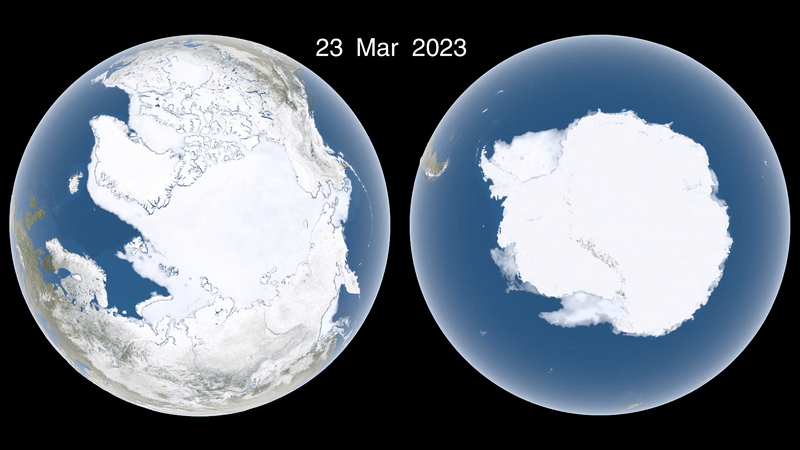Now Reading: NASA Data Shows Earth’s Sea Ice at Record Low
-
01
NASA Data Shows Earth’s Sea Ice at Record Low
NASA Data Shows Earth’s Sea Ice at Record Low

Fast summary
- new NASA and NSIDC research measured Arctic sea ice at its annual peak on March 22, revealing the lowest winter levels ever recorded: 5.53 million square miles (14.33 million square kilometers).
- Summer sea ice in Antarctica also retreated to a record low of 764,000 square miles (1.98 million square kilometers) on March 1.
- Combined, global sea ice coverage fell to an all-time low in February 2025 – over one million square miles (2.5 million square kilometers) below pre-2010 averages.
- Missing global sea ice is now comparable to the size of the continental U.S. east of the Mississippi River.
- Linette Boisvert, NASA scientist, warned that reduced polar ice “doesn’t bode well for the future.”
- Scientific methods include past data from satellites like Nimbus-7 and current radiation tracking technology.
- Walt Meier from NSIDC noted uncertainty regarding AntarcticaS long-term trends but acknowledges ongoing declines are consistent with multi-decade observations.
[Image: Arctic and Antarctic views showing seasonal fluctuations in ice cover.]
(Image credit: Trent Schindler/NASA’s Scientific Visualization Studio)
Indian Opinion Analysis
The unprecedented drop in global sea ice has broad implications for India as climate change intensifies environmental challenges worldwide. Melting polar seas accelerate rising ocean levels and disrupt ecosystems globally-impacts that could exacerbate India’s vulnerability to coastal erosion, flooding risks along its vast coastline, and disruptions to regional weather patterns such as monsoon cycles critical for agriculture.
India faces dual obligation as both a heavily impacted nation and a notable player in advancing global climate action through international collaborations like COP agreements or sustainable development initiatives at home. This research underscores the urgency for comprehensive mitigation strategies targeting emissions across industrial sectors while adapting infrastructure for climatic resilience-an imperative not just globally but acutely crucial domestically.
























